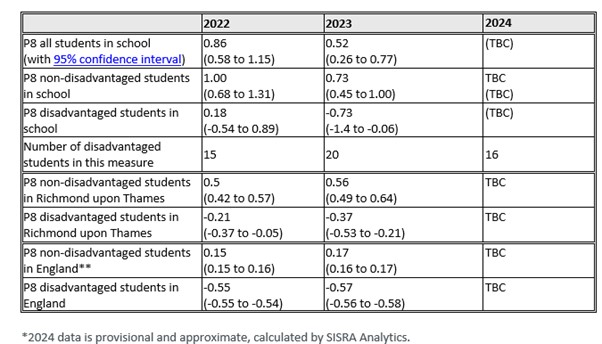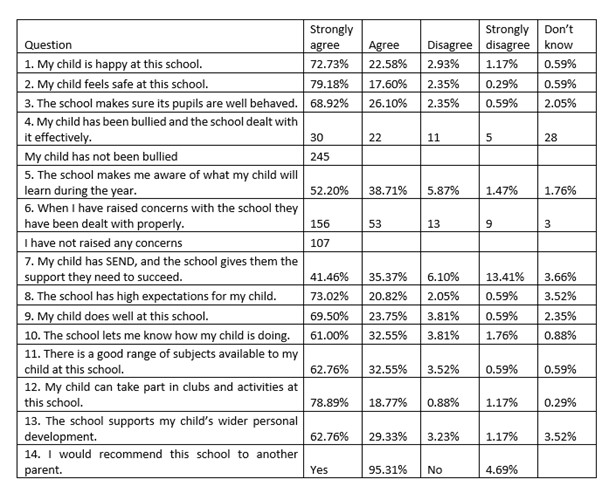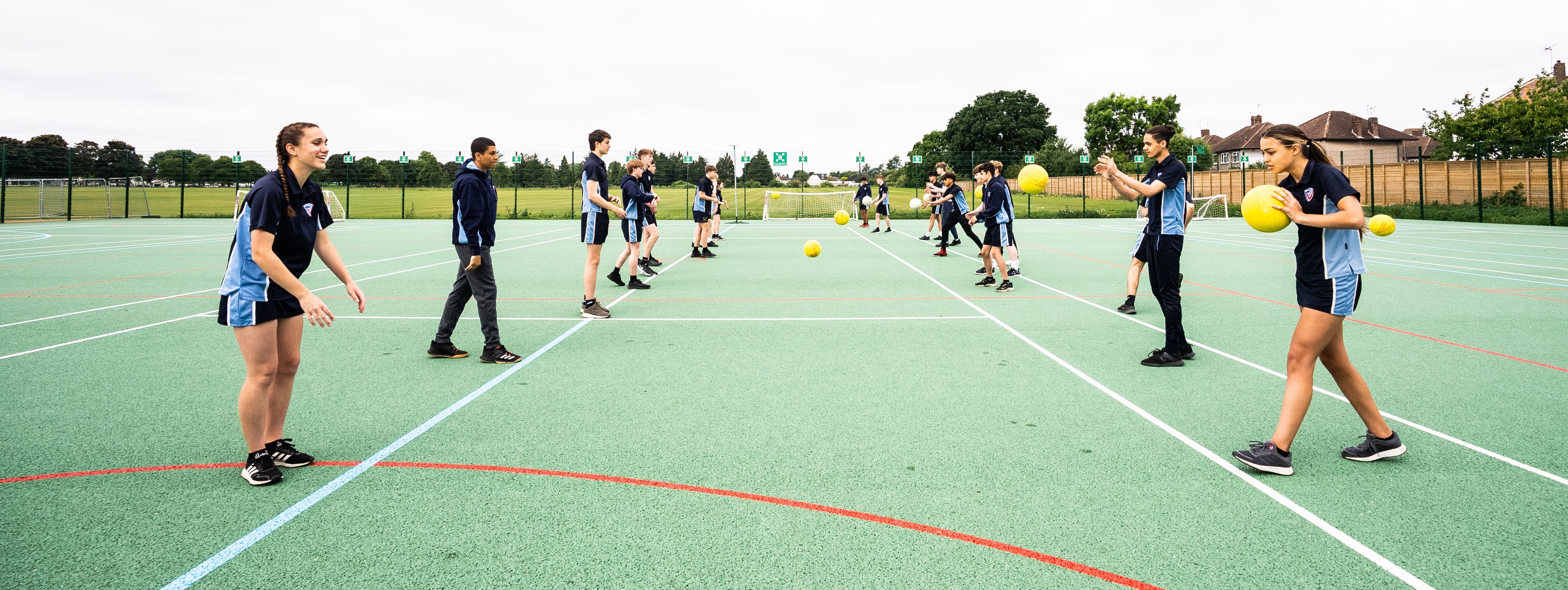Equalities Plan
Turing House School seeks to foster a warm, welcoming and respectful culture which allows us all to question and challenge discrimination and inequality, resolve conflicts peacefully, promote equality, and work and learn in a safe environment. We actively celebrate diversity and encourage our students to develop as strong, confident individuals.
To find out more about our school approach to equality please read our Equal Opportunities Policy. Contextual information:
Turing House School opened in September 2015 with 100 Year 7 students split into four tutor groups. In 2024 we admitted 165 students into Year 7, split into 6 forms. There are more boys than girls in each year group – this is also the case for other co-educational schools in the area due to the proximity of Waldegrave Girls' School. Our latest published population data can be found on the Government’s Compare Schools website.
Fostering Good Relations:
Fostering good relations is imperative to Turing House. We ask our parents and students to take part in surveys to tell us how safe they feel at school and how well they feel we help them build positive relationships. There is more information on our Parent Feedback page.
You can read more about our approach to fostering good relations in the following policies: Attendance; Behaviour; Anti-Bullying; Curriculum; Extra-Curricular; Special Educational Needs; Relationships and Sex Education; Safeguarding.
The work we do to fulfil our aim to foster good relations includes:
- Providing staff training on equality and diversity, at least once per year.
- Our whole school environment and curriculum reflects the diverse community within which we live. We aim for all students in our school to see themselves reflected in the stories we read; the assemblies we hold; and in our displays and curriculum. For example, students study human rights in English & History looking at the Holocaust and other genocides, and they study world religions and ethics in Religion and Philosophy.
- We give clear messages through a huge range of topics in regular assemblies promoting our Turing House
School values including:
- Alan Turing; including the way his homosexuality was treated
- Animal welfare, linked to ‘Veganuary’
- Anti-bullying
- Black History Month; including how much progress there has been but also the problems that still exist, focusing on racism in football, and statistics of black students attending universities
- Charity project: food bank
- Racism; including the difference between explicit/implicit racism or ‘casual racism’
- Black History Month
- White Ribbon Day
- Equality and stereotypes
- Hearing impairment/sign language
- Holocaust Remembrance Day
- Literacy: focusing on access to books, education and literacy levels across the globe with particular focus on low global literacy levels in women and girls
- Looking after our planet/environmental awareness; including the plastic pollution campaign
- Mental health awareness week
- Multiculturalism and diversity
- Pride month, homophobia and the history of homophobia in schools; including the damage that Section 28 did to education
- Remembrance of the slave trade
- Remembrance Day; including the role of the whole empire in the war
- Women and girls in science/engineering
- Special educational needs, including autism and World Autism Awareness day, and Dyslexia Awareness Week UK
- Guest speakers are invited into school to enrich students’ understanding of equality through history to the present day. The list of visitors we have welcomed into school includes: Lesley Urbach Kindertransport Speaker; Kemal Pervanić, Bosnian Genocide Survivor Testimony; Sophie Masereka, Rwandan Genocide Survivor Testimony; Sokphal Din Talk, Cambodian Genocide Survivor Testimony; Dr Claire Kennan, Medieval Historian from Royal Holloway University Lecture.
- The PSHE and RSE curricula are constantly reviewed and developed so that they provide opportunities to explore values and attitudes, understand similarities and differences and build understanding of different groups and our own identities. Parents can give feedback on our RSE curriculum on that separate page.
- We use community and voluntary sector visitors to enrich the curriculum. For example: TfL safer travel; St Marys with St Albans church, and other faith groups through the SACRE and Faith Direct event; the RNLI; Tear Fund; and Shooting Star Chase children’s hospices. We have worked very close since out move with Beelieve, a mental health charity for young people.
- Charity work is led by students through our Student Council which helps to foster good relations within the community. For example, during 2019-20, we supported the Food Bank as our main external charity. We have also supported Children in Need.
- For students who struggle to understand the importance of respect for others we have a range of interventions, including small group work, counselling and discussions with the Police Schools Support Officer, PC Smith.
Fostering Good Relations Objectives 2024:
- To focus on ensuring the highest quality of education around equalities.
- To raise student confidence and skills in challenging prejudice and use their voices to actively contribute towards positive change in our community and society.
- To create a culture where sexism in all forms is not tolerated and where students understand what constitutes harmful sexual behaviours, working towards a community where mutual consent and respect form the foundations of healthy relationships.
Eliminating Discrimination:
We work in partnership with parents and carers, students and the whole school community to prevent all forms of bullying and prejudiced-based behaviour. More is available to read about our approach to bullying and eliminating discrimination in our Anti-Bullying Policy; Equality Policy; and Sex and Relationship Education Policy.
All bullying and prejudiced-based incidents are recorded. These records are used to inform the assembly programme and the PSHE education curriculum and to support and track individual students. Incidents are discussed during pastoral meetings and reported termly to Governors’ meetings. The school will conduct its own Annual Student Voice Survey and regular Parental Voice Surveys. This data is analysed and used to measure impact and inform next steps. This data is reported back to the whole school community on an annual basis.
We actively encourage parents and carers to report any bullying and prejudiced-based incidents to us.
Eliminating Discrimination Objectives 2024:
- To reduce the number of incidents in which homophobic language is used.
Advancing Equality of Opportunity:
Turing House School is completely committed to ensuring that all students make excellent academic progress. We review the progress of all students continually and collect formal progress data three times per year. This data is routinely analysed to ensure that all groups of students are performing equally well across the curriculum.
Advance Equality of Opportunity Objectives 2024:
- To ensure that a higher percentage of students from vulnerable groups make good progress
Equality Objectives - Review of 2023 Targets
|
Fostering Good Relations Objectives:
|
||
|
Target Achieved:
|
||
|
Eliminating Discrimination Objectives:
|
||
|
Target Achieved in Part:
|
||
|
Advance Equality of Opportunity Objective:
|
||
|
Working Towards Target: The school will continue to work on this target. The impact of the pandemic is widely acknowledged in this area. The progress gap between disadvantaged students and their non-disadvantaged peers persists on a national level and at school level. Interventions in place for disadvantaged students include:
Progress 8 Performance Measure: 
|
Ofsted Parent View 2023:

Accessibility Plan
The accessibility plan has been developed for the school’s site to ensure full access by all students, including any with disabilities, including wheel-chair users. There are several students with mobility problems in the current intakes, none of whom use a wheelchair All students are able to access all areas of the school. The school has medical, SEND, and disabilities registers. We have now purchased two evacuation chairs.
Admission of students with disabilities
Children are admitted to Turing House School according to our admission policy. Students with disabilities have their level of need assessed by the school in consultation with the child’s parents, the local authority and health agencies prior to entry to ensure the school’s physical environment and the appropriate resources (materials and personnel) can meet the child’s needs.
How we prevent students with disabilities from being treated less favourably than other students
By ensuring the environment and resources are appropriate after assessing their needs on admission and with regular reviews we will ensure that students with disabilities have the same opportunities as others at the school.
Improving the physical environment of the school for the purpose of increasing the extent to which disabled pupils are able to take advantage of education and benefits, facilities or services provided or offered by the school:
Actions:
- The entrance to the school is level to allow enable wheelchair access, there are 3 disabled parking spaces. There is a dropped kerb at the entrance to the school and the entrance intercom point is wheelchair accessible.
- The minibuses (used for school transport and extra-curricular activities) are to the new specification and can accommodate disabled access and seating by removing 2 rows of seats and the use of a ramp.
- We have 7 disabled toilets with alarms across 3 floors throughout the school. One of these has accessible shower and changing facilities.
Increasing the extent to which disabled pupils can participate in the school's curriculum:
- Students with significant health needs have Healthcare Plans, drawn up by the school.
- The school makes appropriate provision and trains staff as required to accommodate students with particular needs.
- All students will access the curriculum, and mixed ability in core subjects in KS3 will allow students to make rapid and sustained progress regardless of their starting point.
- Class sizes are relatively low (typically 27). Additional interventions and support for numeracy and literacy supports students to access the curriculum.
- The school is inclusive in line with its philosophy and legal requirements, and there are no known barriers to any child accessing classrooms, activities or any part of the curriculum.
- The school will review at least annually the disability profile of the cohort and adjust provision and plans as required.
- In addition to this annual review the school will assess the needs of any new or prospective in-year transfer.
- We review our Extra-Curricular provision to ensure we offer an inclusive programme.
